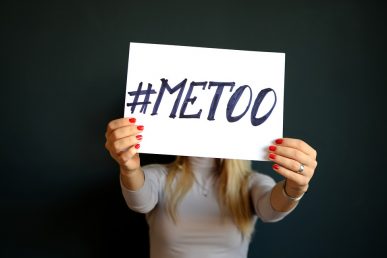I am UIC: Complicating a movement
 When sucked into the momentum of a social movement, it’s easy to think that the perspectives circulated through mediums of mass communication represent the entirety of that movement. Adopting a critical lens to the flow of incoming information works to complicate, diversity and ultimately strengthen the movement’s impact.
When sucked into the momentum of a social movement, it’s easy to think that the perspectives circulated through mediums of mass communication represent the entirety of that movement. Adopting a critical lens to the flow of incoming information works to complicate, diversity and ultimately strengthen the movement’s impact.
This is exactly what a panel of UIC academics sought to do in the second Flash Conference hosted by the Institute for the Humanities. The purpose of these quickly organized Flash Conferences is to discuss current events from a social, cultural, and historical perspective. The topic of the latest conference was “Harassment Culture: #metoo, #timesup, and the Current Conversation.”
The panel included Ronak Kapadia from the Department of Gender and Women’s Studies and Asian American Studies, Deana G. Lewis also of the Department of Gender and Women’s Studies, and Adrienne Massanari from the Department of Communications. Kapadia began with a call to “listen to and learn from the margins,” and he recognized the university as a great avenue for the expression of those voices. However, in the case of the #metoo, it was noted that the simple election and transfer of women into positions of power could not fix a problem that is deeply systemic.
After historicizing the current uproar against sexual harassment, two groups of women were introduced who have been excluded from the movement: incarcerated women and women in the technology industry. Because women in prison don’t fit into the perfect victim paradigm, they are less likely to gain support from the community when reporting harassment. Accordingly, Lewis claimed that the terms “survivors” and “criminals” aren’t absolutely opposed.
The general consensus of the panel was that the movement has been glamorized and they were questionable as to whether its effects would “trickle down” to historically marginalized communities.
The key is to recognize that change cannot be simply measured by the passing of new legislation. The culture from which the grievances emerged and the culture in which those grievances have taken center stage also need to be considered in order to develop a more complete picture of the movement.
Hoda Fakhari is a senior studying biochemistry and English with a concentration in media, rhetoric and cultural studies. She is interested in making connections between subject areas that appear uncomplimentary in order to arrive at more diverse and relevant ways of understanding people and society.
Categories
